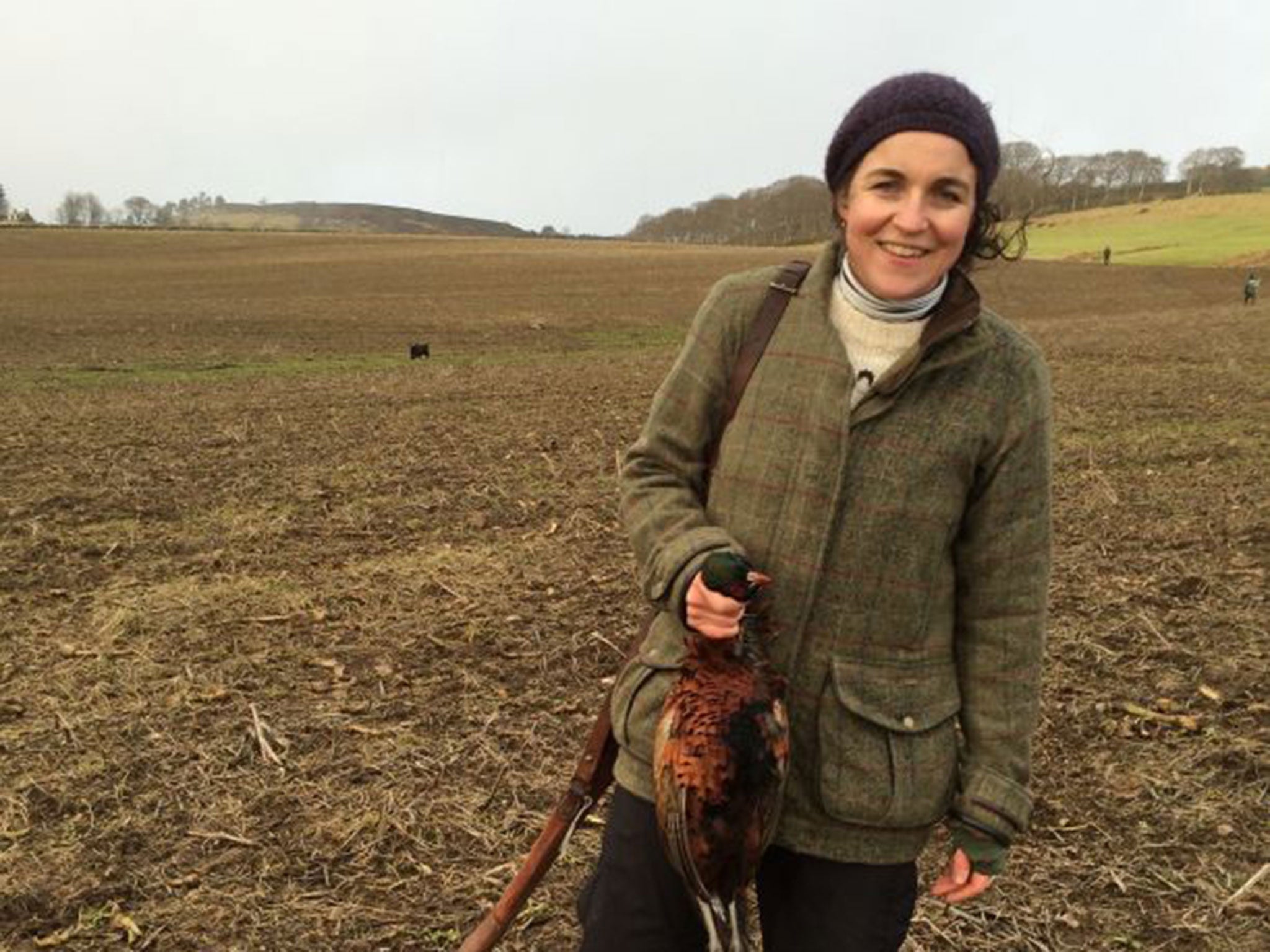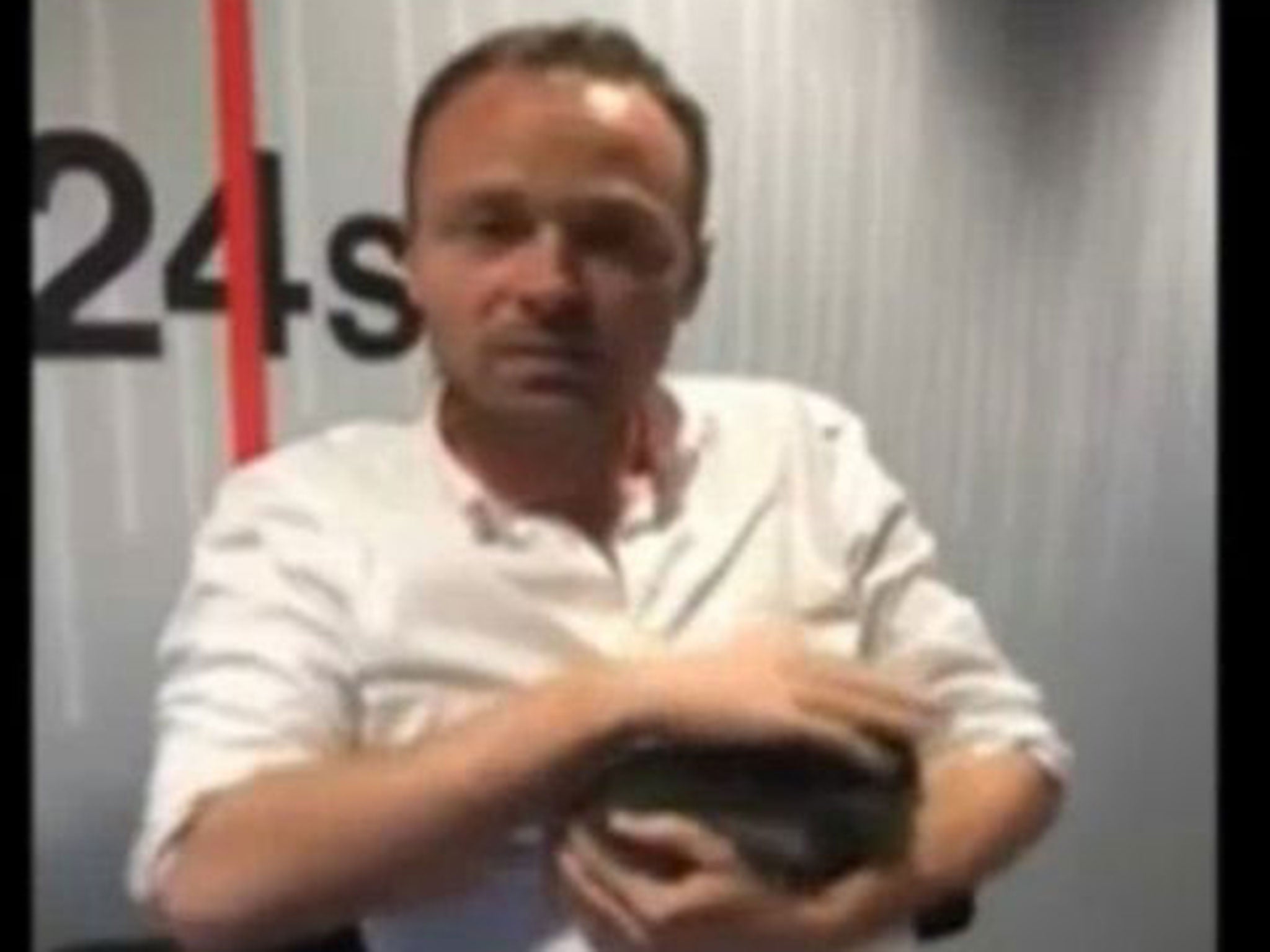Why the Danish radio stunt to kill a rabbit live on air was barbaric and counterproductive
Louise Gray, who is spending a year eating only animals she's killed, says the DJ's efforts to expose hypocrisy of animal rights were made in the wrong way

I still have no idea what Asger Juhl was thinking of.
The Danish DJ brought a nine-week-old pet rabbit into the studio, stroked it tenderly, then clubbed the animal to death with a bicycle pump, before taking the body home to feed to his family.
He claims he was trying to highlight the growing disconnect in modern society between the killing of animals and the meat on our plate. We fret about the welfare of fluffy bunnies while turning a blind eye to the industrialised slaughter of farm animals required to keep us supplied with steaks and sausages, so the argument goes.
I have quietly killed two rabbits recently for a book I am writing on the very same subject. But unlike Mr Juhl, I haven’t resorted to provocative stunts about a deeply emotive subject.
My book, The Ethical Carnivore, is about my year spent only eating animals I have killed myself. The idea is to explore what it is like to kill game like rabbit, but also to investigate how livestock is killed on our behalf, in order to make a more informed decision about eating meat.

It is most certainly not about killing animals for the sake of it. Or for entertainment.
Most of the time, I am a vegetarian, except where I can arrange to kill an animal for a good purpose: to eat and share with friends.
So far, I have killed rabbits, a sheep, pheasants, shellfish, and sea and freshwater fish. I am also visiting farmers and abattoirs to learn about how animals are raised and dispatched commercially. In fact, I will be visiting one in Denmark quite soon.
It’s turning out to be a fascinating journey. Of course, I have been deeply upset at times, most profoundly in my initial experience of killing a rabbit and the first time I visited a slaughterhouse.
But I have also learnt a lot about myself and our wider relationship with animals. Taking responsibility for sourcing meat yourself means learning new skills. It means lying in a ditch in the early hours of the morning waiting for rabbits to come out and feeling much closer to nature.
Seeing animals killed by other people means learning to respect the skill of others and making a decision about whether we want these shocking (to the modern eye) actions to happen on our behalf.
I am following in the footsteps of Facebook founder Mark Zuckerberg who spent 2011 only eating animals he killed himself. He was picking up on our increasing discomfort with how alienated we have become from our food. We eat three times a day, so of course it is important that we understand what it means to kill an animal. Understanding where food is from can make us more civilised.
I don’t really understand the point Mr Juhl was trying to make. If you are going to argue that we should take responsibility for killing animals ourselves, then surely your first point is to emphasise that you would try to do it in as kindly a way as possible?
I understand from my own experience that things can go wrong. But bringing an animal into a radio studio is surely stressful for the creature. And a bicycle pump? Really? To me he has already lost any argument.
If he wanted to make the point, it would surely have been better to kill an animal in a proven and humane way. This has been done on film a number of times and hasn’t caused that much of a stir because generally an audience will accept killing an animal humanely.
I feared I would be criticised for my project, but people are being so supportive. Even my vegetarian and vegan friends like the idea. They can see that, ultimately, this advocates eating less meat – or meat as a treat.
My book begins with a quote from Ernest Hemingway’s paean to bull fighting, Death in the Afternoon. “There is always death and I should not try to defend it now, only to tell honestly what I have found true about it.”
It encapsulates what I am trying to do. Not to justify killing animals, but to help people to understand what taking an animal’s life really means.
The Ethical Carnivore will be published by Bloomsbury in August 2016
Join our commenting forum
Join thought-provoking conversations, follow other Independent readers and see their replies
Comments
Bookmark popover
Removed from bookmarks